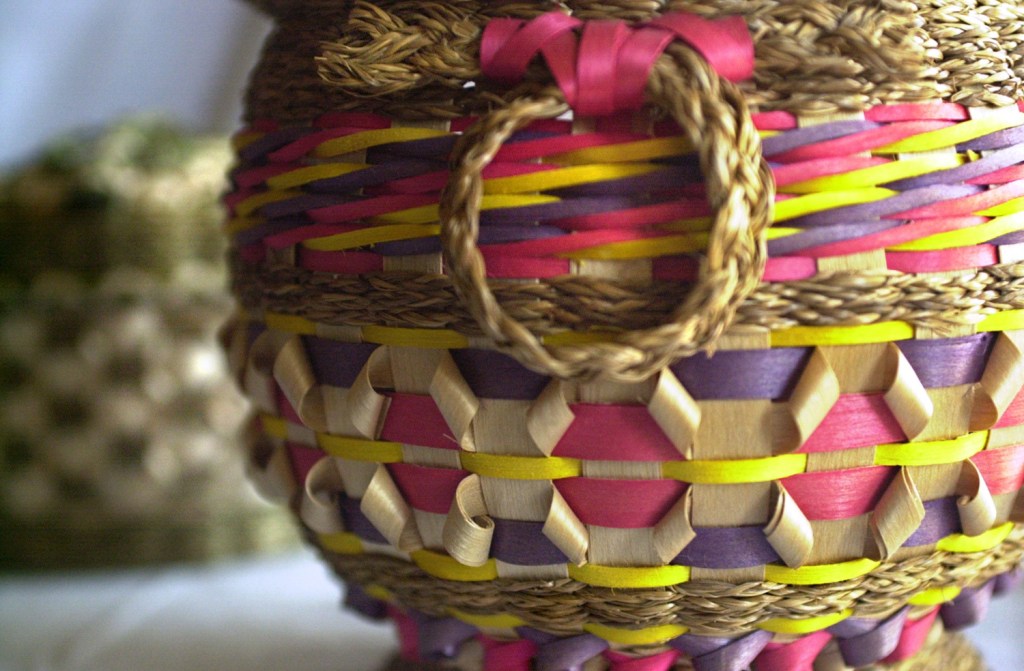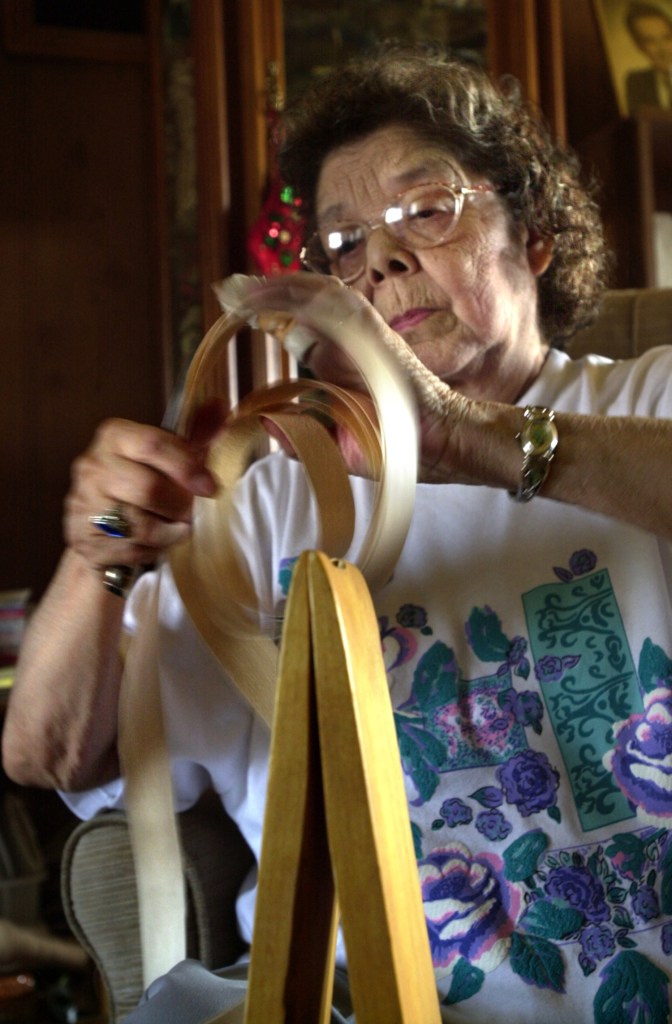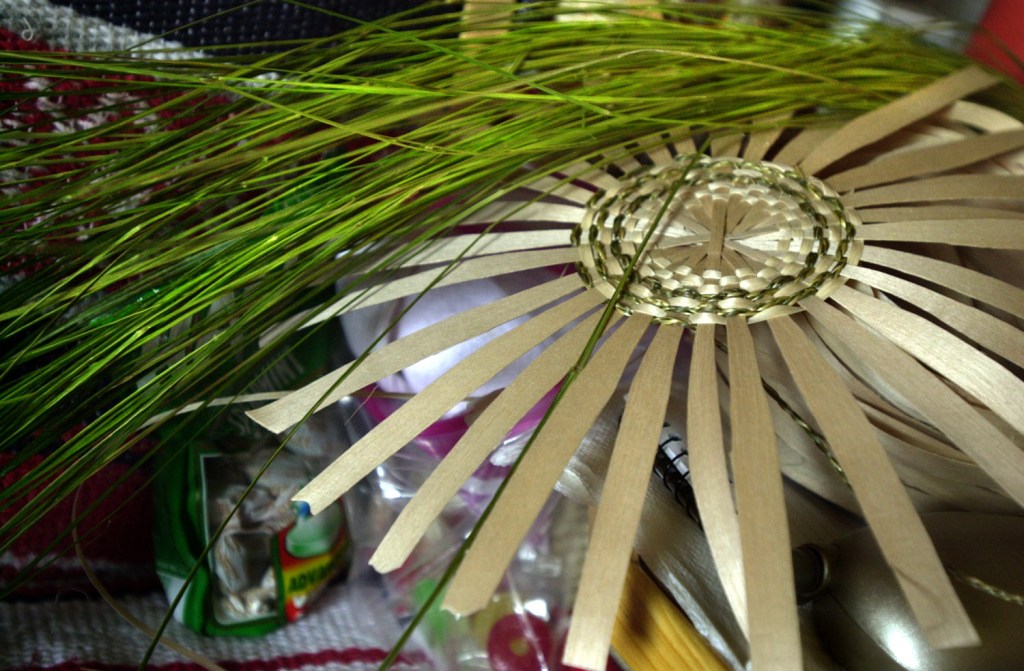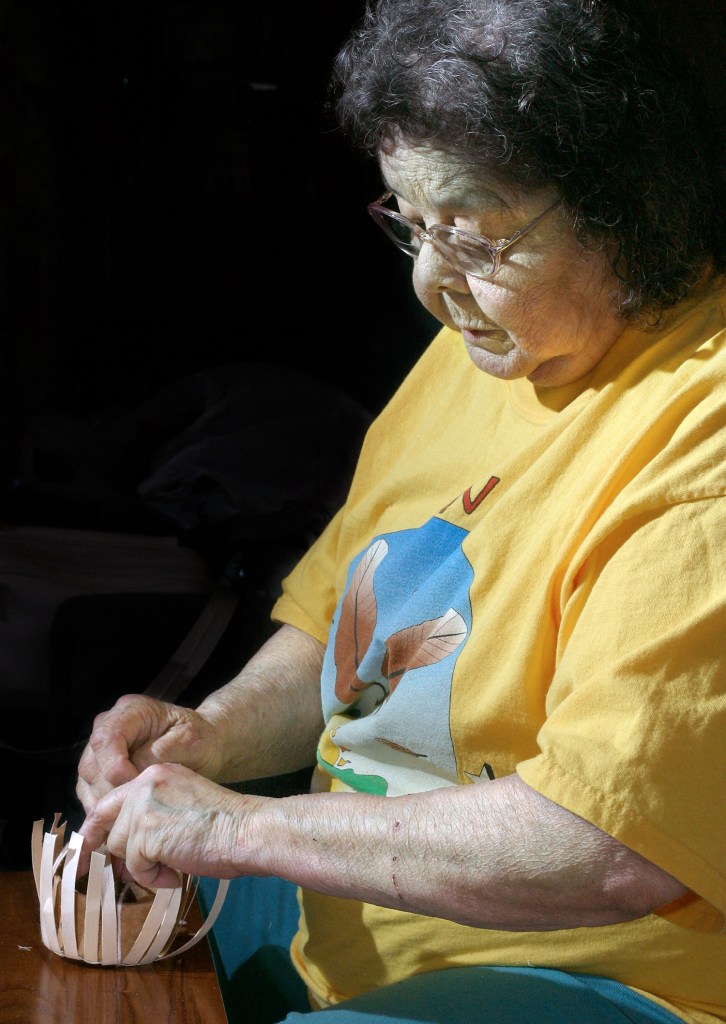A culture keeper of the Passamaquoddy Indians died this week, leaving Maine without a key link to its basketmaking tradition.
Clara Neptune Keezer, who received a National Heritage Fellowship in 2002 for her unique skills as a basketmaker and her eagerness to pass her knowledge to younger weavers, died in Calais on Tuesday, one day before she would have celebrated her 86th birthday. The National Heritage Fellowship is the nation’s highest honor in the traditional arts.
Theresa Secord of Waterville, who won the NEA National Heritage Fellowship this spring, said Keezer was “a giant” in Wabanaki basketry. She taught Secord new techniques as recently as two years ago, continuing a long tradition of mentorship.
As a master in her field, Keezer apprenticed three dozen younger basketmakers, Secord said. “She was usually the first teacher to arrive, knife in hand, at the large tribal community basketry workshops,” she said.
In addition to her teaching, Keezer will be remembered for her innovation. She made significant advances to the basket tradition, notably her strawberry baskets, Secord said. She experimented with designs, including the complex star basket, and her baskets appeared in many national touring exhibitions.
Keezer was born in Eastport and spent much of her life in Pleasant Point. She began weaving baskets at age 8, and learned most of her skills from her elders. Baskets linked generations in her family, she told the Portland Press Herald in 2002, when she received the NEA fellowship.
“My grandmother and parents, they all made baskets, and I just sort of picked it up. I’ve been doing it off and on for 60 years, I guess,” she said at the time. “I stopped for a while, when I got married and had children. But then I went back to making baskets.”
While Keezer mastered traditional skills and made baskets with the forms her grandmother used, she was known for originating new designs and new ideas. She once told an interviewer, “I like to make what I want to make. If they want them, it’s all right. If they don’t, it’s all right.”
Keezer was a founding member of Maine Indian Basketmakers Alliance, which is credited with saving traditional basketmaking in Maine. She and a small group of tribal basketmakers formed the alliance in 1993 to save the ancient ash and sweetgrass basketry traditions among the Maliseet, Micmac, Passamaquoddy and Penobscot tribes of Maine.
They succeeded. The alliance has helped lower the average age of Maine basketmakers from 63 to 40, and increased the number of weavers from 55 to more than 200.
“Always focused on sharing, Clara made baskets and kept the art alive with only a handful of others, during a time when there was very little financial gain and there were no awards,” Secord said in a written statement to the NEA. “Clara’s high standards and gifted artistry in her own work encouraged us all to do better.”
Cinnamon Catlin-Legutko, president and CEO of the Abbe Museum in Bar Harbor, said the impact of Keezer’s death is immediate, but its full effect won’t be felt for generations. The community has lost an educator, an ambassador and a mentor, she said.
“When someone like Clara passes, it’s a momentous event because there is incredible loss of talent and legacy, but the people who could learn from her no longer have that opportunity. That is the tough part,” she said.
Keezer was a link to a generation of people who grew up without electricity. The only activity at night was playing with dolls and doing “odd things with my hands,” she said in the 2002 interview.
Send questions/comments to the editors.







Success. Please wait for the page to reload. If the page does not reload within 5 seconds, please refresh the page.
Enter your email and password to access comments.
Hi, to comment on stories you must . This profile is in addition to your subscription and website login.
Already have a commenting profile? .
Invalid username/password.
Please check your email to confirm and complete your registration.
Only subscribers are eligible to post comments. Please subscribe or login first for digital access. Here’s why.
Use the form below to reset your password. When you've submitted your account email, we will send an email with a reset code.